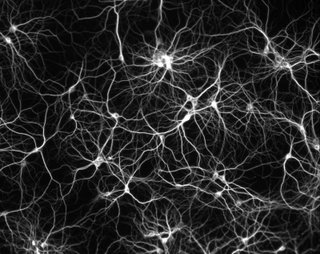Science fiction movies, that talk about advanced alien civilizations, sometimes have a mention of them having their whole "advanced technological information" and "Knowledge" in some supercomputer's "holographic/crystal memory unit". Well if we appeared like an alien advanced civilization to some other intelligent species I think our worlds most comprehensive knowledge repository would be the Internet. A decentralized repository of human knowledge. I think it would have been very difficult to think this way before Google came along and "the way" it made this knowledge accessible. The most comprehensive index of the web. I heard mentioned that, this requires enormous amounts of power and the facility itself is huge. Squeezing out performance and memory under the constraints of power and size based on the limitations of current technology is a huge challenge for Google. Typical constraints:
Power density: Currently Fossil fuel based + some solar power planned (about 30%)
Memory density: Chip Fabrication technologies/HDD densities.
Current computational "capacities"
Connections: Network Bandwidths
If one could some day have some "crystal lattices" storing all of Google's cached pages one could possibly carry the whole human knowledge in ones pocket. Imagine that. Assuming of course, one caches complete pages with multimedia content and all during crawling and the time when almost anything worth knowing is published online.

Structure: It is interesting to see how typically "information and knowledge" structures start showing a certain amount of similarity when viewed from a suitable level of abstraction - Our own network of neurons compared to the network structure of the web. Why such an ad hoc network of connection instead of say the very well structured "structure" of typical main memory chips. Could the answer be - Unplanned unstructured nature of information and knowledge leading to hurried physical structures to contain these?

So the physical structure does take the form of the "untouchable" knowledge it stores. Wrong very wrong. The physical network structures (connections) rarely mimic the knowledge structures (connections).For Example
- The physical network connections of the web compared to the hyper links that connect the the pages (or knowledge) together.
- Different areas of the brain can take up different functions when need arises.
Physical structures are motivated by different constraints than knowledge structures.
That sounds obvious, so what is my point here?
There is a very loose form follows function here too. It may happen that knowledge of a particular nature, finds itself relocated to suitable physical areas and those physical areas reinforced, to better suit knowledge of that particular nature. So, typically different parts of the brain are loosely concerned with different aspects of our functioning. Long term memory area I bet will be having a lots of resonating neural circuits. In nature this knowledge "migration" to suitable areas happened through the process of natural selection.
The point I am trying to get at is that organization of knowledge and the structures that hold that knowledge has to come about eventually both in nature and civilizations.
Pics from:
http://www.greenspine.ca/en/dissociated_culture.html
http://en.wikipedia.org/wiki/Internet